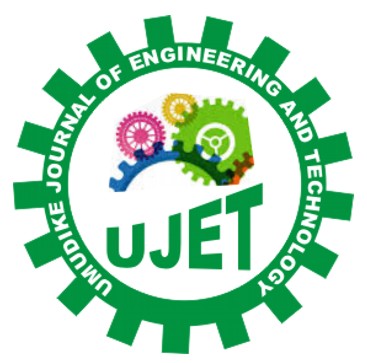|
Augustine, C. U.
Ministry of Agriculture, Uyo, Akwa Ibom State, Nigeria
Ahaneku, I. E.
Michael Okpara University of Agriculture, Umudike. Abia State, Nigeria
Awu, J. I.
National Centre for Agricultural Mechanization, Ilorin, Kwara State
ABSTRACT
This study is centered on the application of the Autoregressive Integrated Moving Average (ARIMA) and Vector Autoregressive (VAR) models for rainfall-riverflow modelling for flood forecasting in Enyong Creek, Akwa Ibom State, Nigeria. Utilizing hydro-meteorological data from 2018 to 2023, the ARIMA model is applied using river discharge data, while the VAR model considers multiple variables, including water discharge, rainfall, and average temperature. Results indicate that the ARIMA validation model performed well for water discharge prediction, achieving an R-squared value of 0.8717 while the VAR validation model has R2 value of 0.8781 indicating a strong correlation. The VAR forecast model, despite being more complex, demonstrated superior forecast performance with R2 value of 0.9873 compared to ARIMA forecast model which has an R2 value of 0.9855. Both models provide valuable insights into the dynamic relationships among variables and were effective in forecasting the water discharge. The success of these models emphasizes the importance of incorporating advanced modeling techniques for improved decision-making and disaster management.
Keywords: Time Series Model, ARIMA, VAR, River Discharge, Flood Forecasting
https://doi.org/10.33922/j.ujet_v10i1_7
|
View: 315 | Download: 9
Published
Tuesday, April 23, 2024
Issue
Vol. 10 No. 1, June 2024
Article Section
GENERAL
The contents of the articles are the sole opinion of the author(s) and not of UJET.
|


